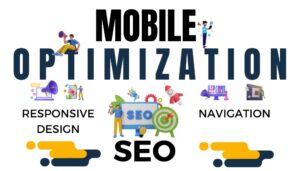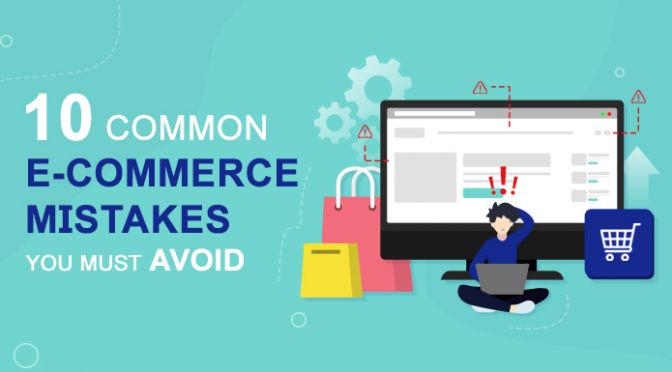The potential for online shopping to revolutionize the way Africans consume goods and services is vast, with estimates suggesting that the African e-commerce market could reach a staggering $75 billion by 2025. However, despite the potential, many entrepreneurs and businesses are still struggling to establish a successful online presence. The harsh reality is that building a thriving e-commerce store in Africa requires more than just a good idea and a fancy website. It demands a deep understanding of the local market, a solid grasp of logistics and payment systems, and a keen ability to navigate the complexities of consumer behavior. Yet, time and time again, e-commerce ventures fall prey to the same avoidable mistakes that can spell disaster for even the most promising of businesses.
At Selly Africa, we understand the aspirations of African entrepreneurs and are dedicated to empowering you to build a thriving online presence. In this post, we’ll discuss the top 10 fatal mistakes to avoid when building a thriving e-commerce store in Africa, and provide you with the insights and strategies you need to succeed in this vibrant and rapidly evolving market.
Mistake 1: Neglecting mobile optimization

It’s astonishing to see e-commerce stores still neglecting the importance of mobile optimization. With a staggering 80% of Africans accessing the internet through their mobile devices, it’s a fatal mistake to ignore the user experience on smaller screens. Imagine a potential customer, eager to make a purchase, but instead, they’re met with a website that’s slow to load, has tiny buttons, and is a nightmare to navigate. The chances of them abandoning your site and taking their business elsewhere are extremely high. In Africa, where mobile penetration is high and desktop access is limited, a mobile-friendly website is very important. no longer a nice-to-have, but a must-have. By prioritizing mobile optimization, you’ll not only avoid frustrating customers but also gain a significant edge over competitors who haven’t adapted to the mobile-first reality of African e-commerce.
Selly Africa platform offer a library of pre-designed themes specifically designed to be responsive and function flawlessly across all devices, ensuring a smooth browsing and buying experience for your mobile customers.
Optimizing for mobile success:
Prioritize user experience: Design your website with a mobile-first approach. Ensure easy navigation, clear menus, and a clutter-free layout optimized for smaller screens.
Invest in high-quality product images: Since mobile screens are smaller, captivating product visuals are even more crucial. Use high-resolution images and optimize them for faster loading times.
Simplify the checkout process: Streamline the checkout process for mobile users by offering features like auto-fill for addresses and one-click payment options.
Mistake 2: Underestimating the complexity of logistics in Africa

Launching an e-commerce store in Africa can be exciting, tapping into a vast and growing market, the promise of limitless opportunities, and the dream of building a thriving online business. but don’t forget the challenges! The reality is that logistics in Africa can be a complex, frustrating, and costly nightmare. With inadequate infrastructure, unpredictable transportation networks, and complex customs procedures, it’s a mistake to assume that getting your products to customers will be a walk in the park. Underestimating these challenges can lead to delayed deliveries, lost packages, and disappointed customers, ultimately crippling your business before it even takes off. Therefore, it’s essential to have a deep understanding of the logistical landscape in Africa. Your business depends on it.
While Selly Africa doesn’t directly solve logistics challenges, it integrates with popular African shipping providers, allowing you to compare rates and choose the best option for your customers.
Beyond integration:
Partner with a reliable logistics provider: Conduct thorough research and choose a logistics partner with a proven track record of efficiency and experience in your specific region.
Offer flexible shipping options: Cater to diverse customer needs by providing a range of shipping options, including express delivery, standard delivery, and cash on delivery (COD) for regions where it’s prevalent.
Transparency is key: Clearly communicate shipping costs and estimated delivery timelines on your website. Consider offering real-time order tracking functionalities to keep your customers informed.
Mistake 3: Not understanding local payment preferences

In Africa, payment preferences can vary greatly from one country to another, and even within different regions of the same country. Failing to understand these local nuances can be a major hurdle in converting browsers into buyers. For instance, while credit card payments are widely accepted in South Africa, in Nigeria, mobile payments and bank transfers are the preferred methods. In Kenya, M-Pesa, a mobile payment service, is the go-to option for many online shoppers. If your e-commerce store doesn’t offer these payment options, you’re likely to lose sales and alienate potential customers. Moreover, some African countries have limited internet penetration, making it difficult for customers to access online payment systems. In such cases, offering alternative payment methods like cash on delivery or in-store pickup can be a game-changer.
Selly Africa integrates with popular payment gateways. We understand the importance of flexibility and empower you to connect your store with a variety of payment gateways popular in Africa.
Understanding your payment landscape
Research local payment trends: Stay updated on the most popular payment methods in your target region. Offer a variety of options to cater to diverse customer preferences.
Partner with secure payment gateways: Choose reputable payment gateways that prioritize security and offer fraud protection features.
Mistake 4: Inadequate website security and fraud protection

Cybersecurity is paramount in today’s digital world. Customers entrust their personal information and financial details to your online store. Failing to prioritize security can lead to data breaches, loss of customer trust, and potential legal ramifications. Imagine waking up to find that your website has been hacked, and sensitive customer data has been compromised. The consequences can be devastating, leading to a loss of customer trust, damaged reputation, and even legal repercussions. To avoid this fatal mistake, ensure that your website has an SSL certificate, implement robust password policies, and use reputable payment gateways that offer fraud detection and prevention tools. Additionally, regularly monitor your website’s performance, and stay up-to-date with the latest security patches and updates. By prioritizing website security and fraud protection, you can safeguard your e-commerce store and maintain the trust of your customers.
Selly Africa prioritizes security. Our platform utilizes industry-standard security protocols and integrates with secure payment gateways to safeguard your website and customer information. We also recommend staying updated on the latest security threats and implementing best practices to further protect your online store.
Building a Secure e-commerce fortress
The shield of SSL: Secure Sockets Layer (SSL) encrypts data transmitted between your website and your customers’ browsers. This creates a secure tunnel, protecting sensitive information like credit card details from prying eyes. Ensure your website has a valid SSL certificate to inspire trust and safeguard customer data.
Password power: Implement strong password policies for both customer accounts and your own administrative access. Enforce minimum password lengths, a combination of uppercase and lowercase letters, numbers, and symbols. Encourage customers to use unique and complex passwords for optimal security.
Trusted payment gateways: Partner with reputable payment gateways that prioritize security and fraud prevention. These services offer advanced fraud detection tools and secure transaction processing, giving you peace of mind and building customer confidence.
Eternal vigilance: Don’t let your guard down. Regularly monitor your website’s performance for any suspicious activity. Stay updated with the latest security patches and software updates to ensure your website remains protected from evolving threats.
Mistake 5: Failing to showcase your products effectively
In the bustling marketplace of e-commerce, captivating product presentations are the difference between a curious visitor and a loyal customer. Generic descriptions and blurry images leave customers in the dark. Imagine browsing an online store filled with poorly lit photos and descriptions that simply state “Blue T-Shirt” or “Comfortable Shoes.” Would you feel confident about making a purchase? The chances of you making a purchase are slim, right? In the absence of effective product presentation, your online store becomes a graveyard of lost sales opportunities. High-quality product descriptions and captivating visuals are the cornerstone of successful online selling. They act as your silent salespeople, convincing customers of the value your products offer and ultimately leading them to the checkout. Without them, customers struggle to understand what makes your products special, leading to indecision, cart abandonment, and lost sales.
While Selly Africa doesn’t directly create product content, our platform empowers you to showcase your offerings effectively.
Crafting compelling product descriptions
Go beyond the basics: Ditch generic descriptions and focus on storytelling. Highlight the features and benefits of your products, but also weave in the emotional connection. How will your product improve the customer’s life?
Target specific needs: Identify the problems your products solve and address them directly in your descriptions.
Optimize for search engines: Include relevant keywords throughout your descriptions to improve organic search visibility.
Invest in high-quality product photography: Visuals are the first impression your products make. Use high-resolution photos that showcase your offerings from multiple angles.
Embrace multiple image options: Allow customers to zoom in on product details and explore different views. Include close-up shots of textures, materials, and any unique features.
Maintain consistency: Use a consistent style and lighting setup for all your product photos. This creates a professional and visually appealing aesthetic for your store.
Mistake 6: Confusing customers with unclear policies

Ever wonder why people abandon their shopping carts online? Sometimes it’s because they get confused at checkout. Imagine you’re buying something online and you’re excited to get it. But then you see the shipping info and it’s not clear how much it costs or how long it will take to arrive. That confusion can make you decide not to buy anything after all. In online shopping, transparency is key. Unclear policies, particularly regarding shipping costs and returns, can leave customers feeling hesitant and ultimately abandon their carts.
Selly Africa empowers you to craft clear and concise policies that eliminate confusion and build trust with your customers.
Crafting clear shipping policies:
Define shipping costs and timelines: Clearly outline your shipping costs and estimated delivery timelines based on location and order value. Utilize a table or visual representation for easy understanding.
Offer multiple shipping options: Cater to diverse customer needs by providing a range of shipping options, including express delivery for urgent purchases and standard delivery for budget-conscious customers.
Outline your return and refund policy: Clearly define the timeframe for returns, conditions for receiving a full refund, and any associated costs (e.g., return shipping fees).
Make the return process hassle-free: Provide clear instructions on how to initiate a return and ensure the process is user-friendly.
Provide a Frequently Asked Questions (FAQ) section: Address common customer questions regarding shipping, returns, and other policies within an easily accessible FAQ section.
Mistake 7: Not complying with local laws and regulations

In the excitement of launching an e-commerce store in Africa, it’s easy to overlook the importance of complying with local laws and regulations. However, this mistake can have severe consequences, including legal action, fines, and even the shutdown of your business. From tax laws to consumer protection regulations, intellectual property laws to data privacy laws, the list of regulations to comply with is lengthy. Failure to comply with these laws can lead to a loss of customer trust, damage to your brand reputation, and even financial penalties. To avoid this mistake, it’s essential to conduct thorough research on the laws and regulations of the African countries you’re operating in. This may involve seeking legal counsel or consulting with industry experts who have experience in African e-commerce.
While Selly Africa can’t offer legal advice, Selly Africa prioritizes staying updated on relevant Kenyan e-commerce regulations.
Staying compliant, staying secure
Seek legal counsel: Consulting with a qualified lawyer specializing in e-commerce law is crucial. They can guide you through the legalities, ensure your business adheres to all necessary regulations, and help you navigate the legalities specific to your industry and business model.
Stay informed: The regulatory landscape can evolve. Make it a habit to stay updated on any changes or amendments to Kenyan e-commerce regulations.
Transparency builds trust: Clearly display your business registration details, terms and conditions, and privacy policy on your website. This transparency fosters trust with your customers and demonstrates your commitment to operating within the legal framework.
Mistake 8: Underinvesting in digital marketing and advertising

Imagine opening a beautiful store on a deserted street. No matter how amazing your products are, if nobody knows you exist, they won’t come knocking. A strong online presence is essential to reach your target audience, attract customers, increase brand awareness, drive website traffic, and ultimately, boost sales and revenue. However, many entrepreneurs make the mistake of underinvesting in digital marketing and advertising, thinking that they can rely on word-of-mouth or traditional marketing strategies to drive sales. This is a fatal mistake. With the majority of Africans now online, digital marketing and advertising are essential for reaching and engaging with your target audience. Without a well-planned digital marketing strategy, you’ll struggle to attract and retain customers, leading to stagnant sales and a struggling business. By underinvesting in digital marketing, you’ll also be surrendering valuable market share to your competitors, who are likely to be more aggressive in their online marketing efforts.
Making noise in the digital marketplace:
Harness the power of social media: Selly Africa integrates with popular social media platforms like Facebook and Instagram. Utilize these platforms to showcase your products, connect with potential customers, and build brand awareness. Run targeted social media ad campaigns to reach your ideal audience and drive traffic to your online store.
Email marketing magic: Targeted email marketing campaigns are a powerful tool for customer acquisition and retention. Selly Africa integrates with popular email marketing services, allowing you to create engaging email campaigns that promote your products, share special offers, and nurture leads.
Content is King: Create informative and engaging content related to your products and industry. This could include blog posts, social media content, or even short videos. Valuable content establishes you as an authority in your field, attracts organic traffic, and positions your brand for success.
Search Engine Optimization (SEO): Optimize your online store for relevant search terms to improve your ranking in search engine results pages (SERPs). This increases your visibility to potential customers searching for products like yours.
Mistake 9: Poor customer service and support

In the competitive world of e-commerce, customer service and support are the unsung heroes that can make or break a business. Unfortunately, many African e-commerce stores fall short in this critical area, leading to a trail of disgruntled customers and negative reviews. Imagine this: A customer excitedly purchases a product from your online store, only to receive a damaged item. They reach out for help, but their messages go unanswered. Frustrated and disappointed, they leave a scathing review online, deterring potential customers and tarnishing your reputation. In Africa, where social networks and word-of-mouth can spread like wildfire, the consequences of poor customer service can be devastating. To avoid this mistake, it’s essential to invest in a robust customer service infrastructure, including a responsive and empathetic team, a comprehensive FAQ section, and multiple channels for customers to reach out to you.
Selly Africa doesn’t directly manage your customer service, but we provide tools to streamline communication. Our platform offers built-in contact forms and live chat options, allowing you to efficiently address customer concerns and foster positive interactions.
Building a customer service powerhouse
Invest in a responsive team: Assemble a dedicated customer service team that is knowledgeable, empathetic, and solution-oriented. Train your team members to handle inquiries efficiently and professionally, leaving customers feeling heard and valued.
Multiple avenues for support: Offer various channels for customers to reach your support team, including email, phone support, and live chat functionalities. This flexibility ensures customers can choose their preferred method of communication.
The power of self-service: Create a comprehensive FAQ section on your website. Address common customer questions and concerns proactively, empowering customers to find solutions independently and reducing the burden on your support team.
The magic of “Thank You”: Don’t underestimate the power of expressing gratitude. A simple “thank you” email after a purchase or a follow-up email after a service interaction can go a long way in fostering positive customer relationships.
Mistake 10: Not providing multiple language support

Africa pulsates with a vibrant tapestry of cultures and languages, boasting over 2,000 spoken across the continent. Imagine a potential customer from Senegal brimming with excitement to shop online, only to land on your store and be confronted by a language barrier. Confusion sets in, and the prospect of a purchase dwindles. In this multilingual landscape, neglecting to offer multiple language support on your e-commerce store can be a costly blunder. By incorporating these languages into your e-commerce platform, you’re showing your customers that you value their cultural identity and are committed to providing a seamless shopping experience. Moreover, providing multiple language support can also give you a competitive edge in the market. It’s an opportunity to differentiate yourself from other e-commerce stores and demonstrate your commitment to serving the diverse needs of African customers. So, don’t make the mistake of assuming that English is the only language that matters. Instead, take the time to research and implement language support that resonates with your target audience.
Unlocking growth through multilingualism
Providing multiple language support goes beyond mere convenience; it’s a strategic advantage. Here’s why:
Expanding your reach: By incorporating popular African languages like Swahili, Yoruba, or Hausa, you open your online store to a vast new pool of potential customers who might have otherwise been excluded due to language barriers.
Enhanced user engagement: Customers are more likely to engage with content and confidently make purchases when presented in their native language. Understanding product descriptions and navigating your website becomes a smoother experience, fostering trust and confidence.
A competitive edge: In a crowded e-commerce market, offering multiple language support can set you apart from competitors who prioritize a one-size-fits-all approach. This commitment to multilingualism demonstrates your dedication to serving the diverse needs of African consumers.
